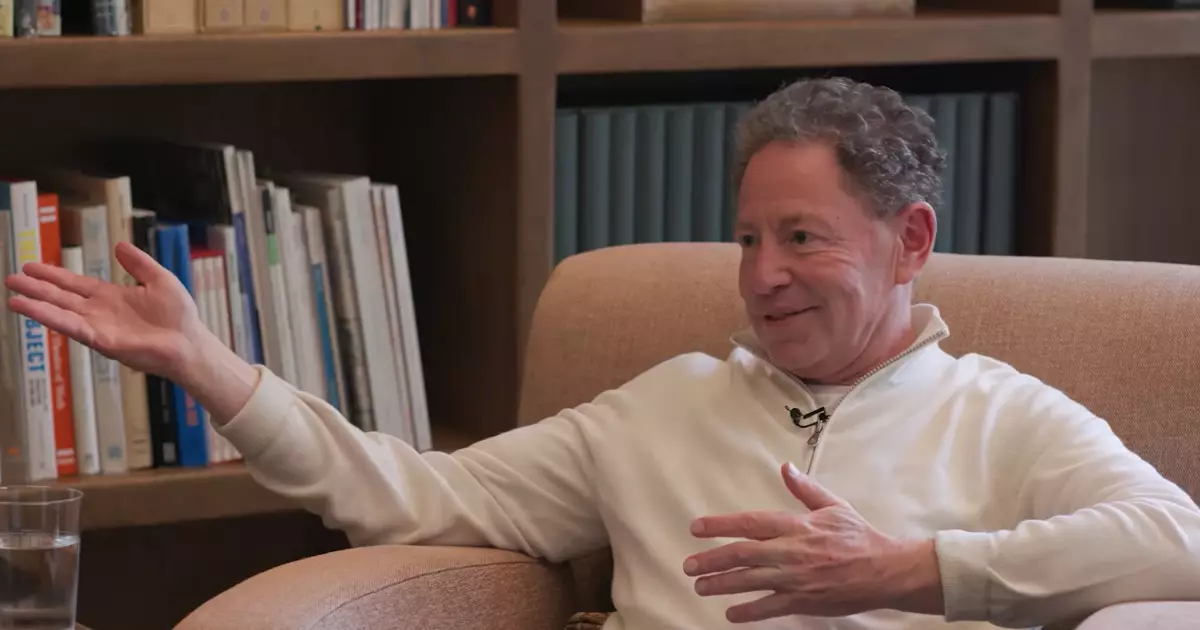Bobby Kotick, the former CEO of Activision Blizzard, has once again made headlines with his remarks on the Grit podcast, where he dismissed various sexual harassment lawsuits against the company as “fake lawsuits.” This statement, described by the Communication Workers of America (CWA) as “false” and “insulting” to victims, has reignited debates surrounding workplace culture, corporate responsibility, and the nuances of unionization efforts within the gaming industry. As unions grow increasingly powerful, especially in historically anti-union industries like video gaming, the implications of Kotick’s words resonate far beyond the podcast’s audio waves.
In response to Kotick’s comments, a spokesperson for the CWA stated unequivocally that his claims were baseless. The CWA’s rejection of his narrative hinges on tangible evidence, including the $18 million settlement reached with the Equal Employment Opportunity Commission (EEOC) in 2021, which addressed allegations that Activision Blizzard perpetuated a toxic work environment marked by discrimination and harassment. Moreover, according to the CWA, Kotick previously expressed regret in a separate press release for the misconduct occurring under his leadership, highlighting the contradictions embedded within his recent statements.
This disjunction is particularly relevant in a modern context where transparency and accountability are expected from leaders, especially those who govern sizable entertainment companies. The CWA’s insistence on the truth of these legal battles reflects a keen awareness of how narratives can be manipulated, especially in the face of union movements.
Activision Blizzard’s financial settlements are critical markers in understanding this ongoing saga. Following the EEOC agreement, additional fallout led to a staggering $54 million settlement with California’s Civil Rights Department in 2023 over charges of workplace discrimination against women and pay inequities. The settlements are significant steps toward addressing the grievances brought forth by employees, but they also prompt essential questions about the broader implications of corporate governance and employee treatment.
While these monetary settlements have allowed Activision Blizzard to alleviate some immediate liabilities, they are only a small facet of the underlying problems that motivate workers to form unions. As a response to those concerns, the company has committed to establishing anti-harassment training programs and expanding mental health services for employees. Nevertheless, these measures can be perceived as attempts to pacify rather than reform, leading to skepticism among those who experienced firsthand the challenges of working in a contentious environment.
The ABK Workers Alliance, a union formed by Activision Blizzard employees, has also publicly rebutted Kotick’s assertions. In statements made via social media, they condemned the idea that the traumas, discrimination, and abuse faced by workers were a mere fabrication aimed at bolstering union presence. By asserting the legitimacy of their experiences, the alliance encapsulates the drive for meaningful workplace reform—a narrative often drowned out by corporate propaganda that seeks to undermine unionization efforts.
Their response signifies a pressing need for accountability within corporate structures—many employees feel their trauma was unjustly dismissed, and their push for representation through unions is largely a reaction to feeling unheard. The unions are perceived not as external entities imposing changes but rather as organic collective movements arising from shared experiences of adversity.
Importantly, the CWA emphasizes that the recent union organizing at Activision Blizzard has prompted a critical cultural shift within the company. The assertion that unions are not a third-party intervention but rather a collective voice for employees underscores the changing landscape of labor rights in the tech and gaming sectors. The challenge ahead lies in dismantling the stigma associated with unionization, particularly in industries historically dominated by a separation of employees from corporate oversight and representation.
As Kotick exits the stage, workers are finding empowerment through collective organizing, driving both social and corporate change. The symposium on labor dynamics in the gaming industry has shifted dramatically, and the new narrative of employee advocacy is taking prominence as unions work to establish safer, more equitable work environments.
Ultimately, Bobby Kotick’s remarks during the Grit podcast highlight the complex and multifaceted issues surrounding workplace misconduct allegations, corporate governance, and union strength in the gaming industry. As Activision Blizzard continues to navigate its tumultuous history, the clarion call for genuine change echoes louder than ever. Activision’s future, shaped significantly by its workforce’s determination to unionize and address systemic issues, stands at a critical juncture that could redefine the company’s role in the entertainment landscape. The challenge remains—to transform the narrative from corporate denialism into a story of accountability, unity, and progress for those who make gaming a vibrant and dynamic industry.

